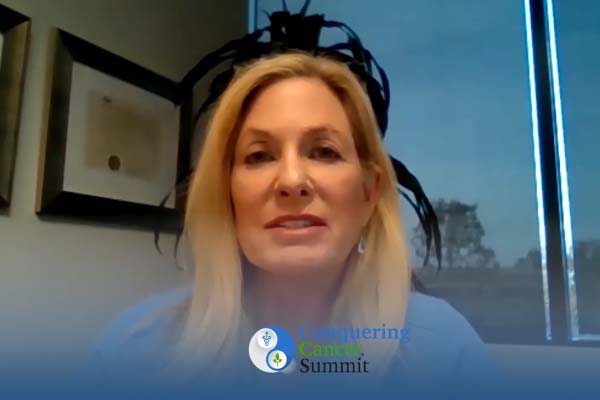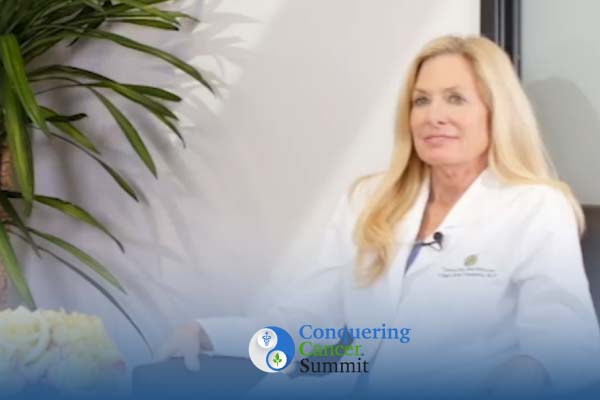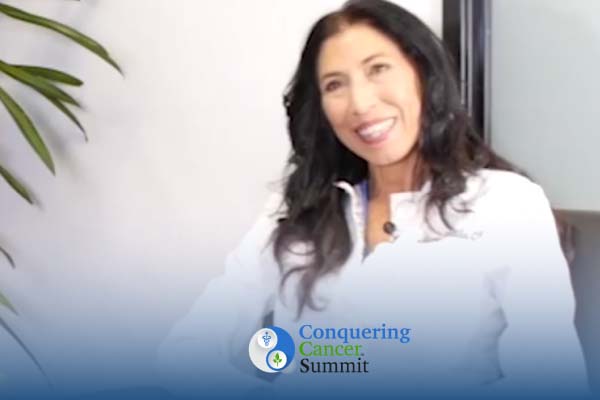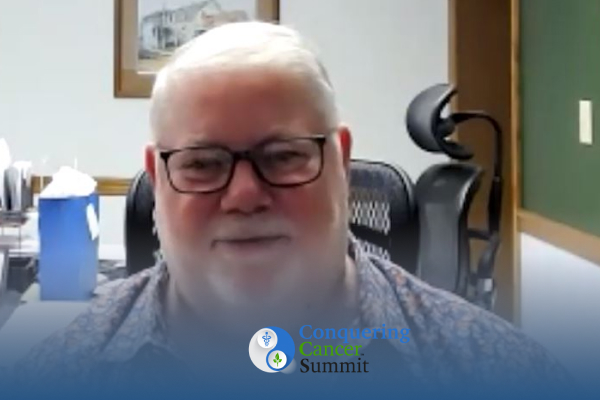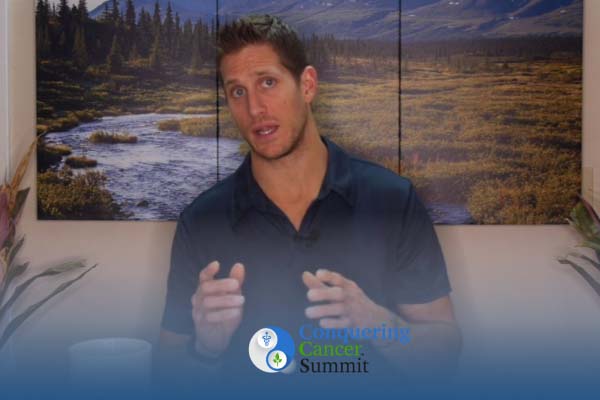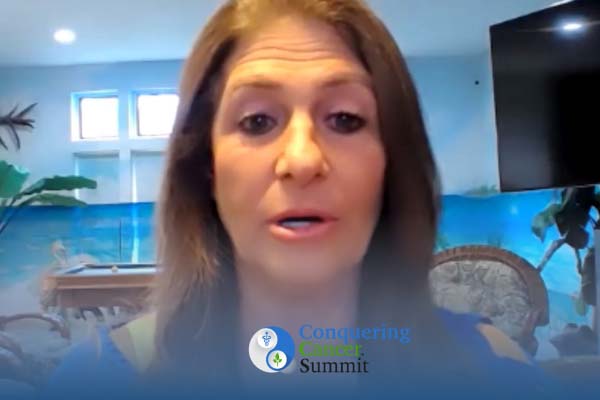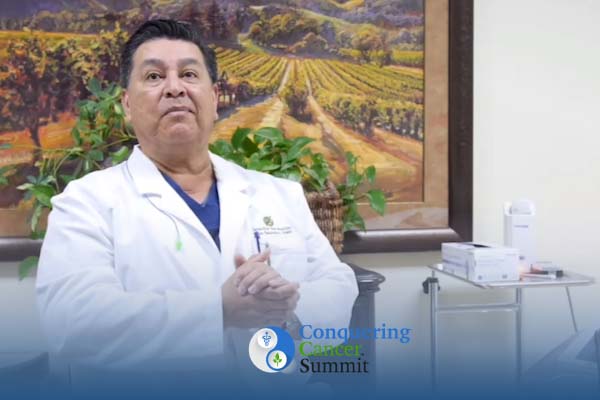Join the discussion below
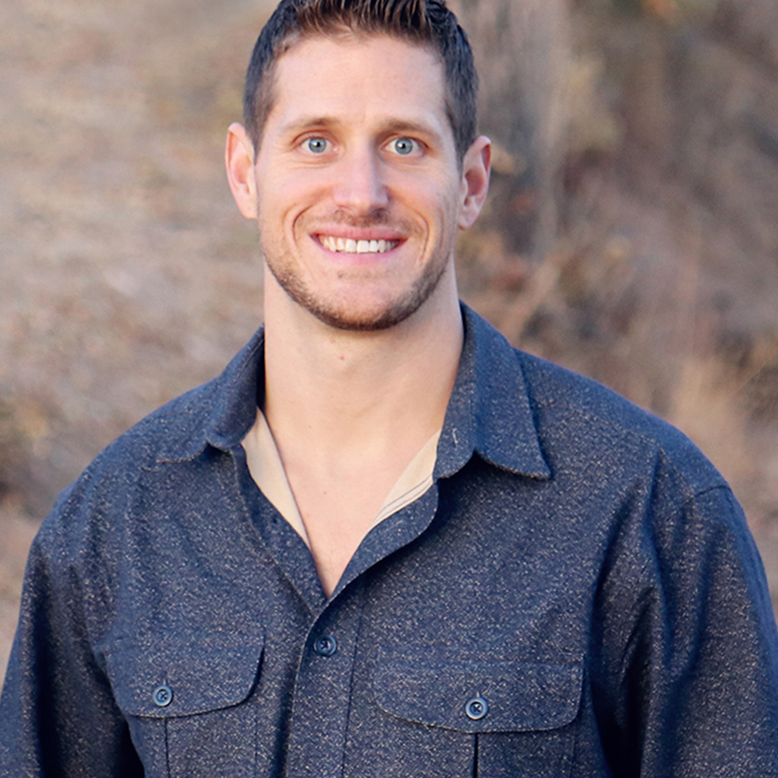
Nathan Crane is an award-winning author, inspirational speaker, plant-based athlete, event producer and 18x award-winning documentary filmmaker. Nathan is the Founder of The Panacea Community, Creator of the Global Cancer Symposium, and Director and Producer of the documentary film, Cancer; The Integrative Perspective. He is also the Director of Strategic... Read More
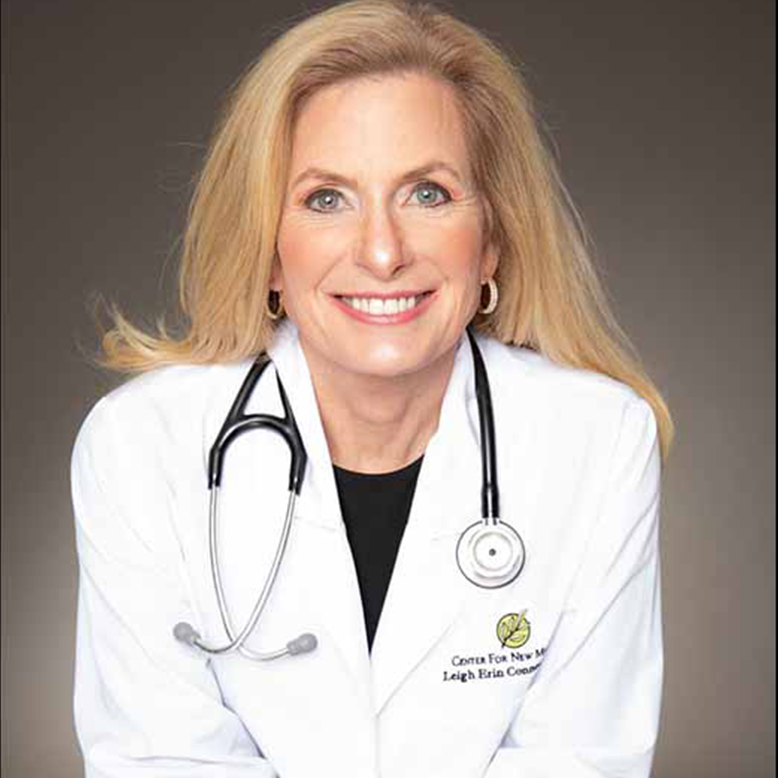
Leigh Erin Connealy, MD is a prominent leader in the Integrative & Functional Medicine medical field (taking the best of all sciences, including conventional, homeopathic, eastern medicine, and the new modern medicine). She is the Medical Director of two amazing clinics “The Cancer Center For Healing” & “Center For New... Read More
- How to overcome the fear associated with the scariest diagnosis of your life.
- Why you should never become -or- own the diagnosis.
- How to put your cancer in checkmate.
- How to turn your cancer diagnosis into a positive transformational experience for your life Case studies of 2 woman who reversed cancer after being told they only had months to live.
Related Topics
Cancer, Cancer Diagnosis, Cancer Prognosis, Chess Metaphor, Conflict Resolution, Disease Management, Emotional Self-reflection, Environment, Health Span, Immune System, Joy, Life Of Purpose, Life Of Vitality, Love, Overcoming Cancer Fear, Peace, Positive Thoughts, Resilience, Spontaneous Healing, StressNathan Crane
Hey, it’s Nathan Crane, Director of the Health and Healing Club and host of the Conquering Cancer Summit. And today I am honored and excited to welcome you to a very special interview. Dr. Leigh Erin Connealy has treated over 47,000 patients. By this point, she leads two medical centers, including the largest integrative medical clinic in North America. The offices offer a vast array of services for men, women, children, including the latest in cancer therapies, nutrition, weight loss, and so much more. Even though they specialize in helping people with cancer, they actually work with and help people dealing with all kinds of chronic diseases. And she has just an incredible team that support her with this beautiful mission.
Dr. Connealy is a prominent leader in the field of integrative medicine. She utilizes the best of all sciences, including conventional homeopathic, eastern and modern medicine. She’s the medical director of the Cancer Center for Healing as well as the Center for New Medicine. You can learn more about her and her work and her team and all her great resources at her website, connealymd, it’s C-O-N-N-E-A-L-Y, connealymd.com. Dr. Connealy, thank you for being here with us.
Leigh Erin Connealy, M.D.
Thank you for having me. It’s my pleasure, Nathan.
Nathan Crane
Yeah, it’s always a joy and a treat to get to talk with you and learn from you and just feel like we were just talking for a few minutes behind the scenes and to feel your passion, your love, your commitment, your dedication to helping patients. You just told me it’s a must. It’s not a should or a maybe, or a… For you, it is a must to really help people regain back control of their health. And I think that’s what makes you so incredible at the work you do and be able to help so many thousands of people dealing with something that can be incredibly scary and frightening like a cancer diagnosis. So thank you for that. And the first question I want to dive into is really just the main topic of this interview which is how is it even possible for someone dealing with cancer, how’s it possible for someone to turn a cancer diagnosis around from a death sentence to a life of purpose, a life of vitality, and even potentially a life of a lot more joy.
Leigh Erin Connealy, M.D.
Yeah, so that is the real quandary here because as you know, you and I both know, and anyone listening that cancer is probably the scariest diagnosis you can get. I mean, there’s probably nothing worse when the top three diseases are heart disease, but people don’t get really scared. It maybe jolt them a little bit, but I noticed that, yeah, once they get the diagnosis and get things taken care of, they go like, okay, I’m gonna make these changes and they’re very systematic and organized about it. But when people are diagnosed with cancer which is the second leading cause of death, over 1600 people die a day of cancer, they’re absolutely in shock. It’s like a terrorist feeling, they’re in fear.
They’re just getting the diagnosis, is unbelievable trauma. And because when they’re told the diagnosis, they’re kind of just casually told by a doctor, could be the oncologist, it could be the primary care, it could be a surgeon. It could be any number of practitioners in their journey telling them, okay, you have cancer, and you know, I had a patient the other day tell me that a year ago she had two cancers in her life. There’s a reoccurrence of one of the cancers, she’s stage four. And on Christmas Eve, because it’s Christmas time the doctor told her, okay, you have cancer, you have six months to live.
Well, first of all, no doctor ever learned in medical school or training how to give an expiration date. So I tell people, none of us know how to really predict the future. So let’s not plant that seed because what they have learned is once you tell a patient that they have three months to live, six months to live, a year to live, or I can give youtwo years, it’s a self-fulfilling prophecy. And so we never want to tell a patient, one, you’re a disaster, two, this is really difficult. And number three, this is a cancer diagnosis that has a very poor prognosis. Oh, you have whatever months to live. We never want to do that because we know if you look up spontaneous healing, there are thousands of people that have tragic diseases and cancer and they have completely spontaneously healed. So how did that happen? Well, it’s interesting when you go to oncologist and that happens, they go, oh, well, you probably never had cancer to begin with. Well, no, I had a biopsy. I had scans, et cetera.
Nathan Crane
Or they just chalk it up to some miracle. And that’s all, it’s a miracle, have a great day.
Leigh Erin Connealy, M.D.
Yeah, exactly, and never understand.
Nathan Crane
Why do doctors give that kind of prognosis?
Leigh Erin Connealy, M.D.
Well, because that’s a good question, because they learn through their training that okay, this cancer, let’s take pancreatic cancer, ’cause pancreatic cancer is a pretty serious cancer and they just know from history. But if you know from history, it’s like you have a child and they happen to be disabled. And if you treat them disabled, they become more disabled. Whereas if you treat them like normal, it’s amazing how they’ve become because this has been studied. So, the more you treat people as normal and as capable and completely powerful in their destiny, then that’s how they become.
So we can’t do that. It’s just like when kids have trauma as a child. We know how that trauma affects them later on in life. And so we know that now. So the first seven years of your life is like powerful. And then the average person doesn’t know what happens really in the first seven years of your life ’cause a lot of us can’t remember that, but there’s a recording, a record player playing. And then once they do the work, the emotional self-reflection, self-examination of their life, then they start saying, oh my goodness, I just had no idea how that was affecting me because we live in our subconscious, not in our conscious.
So if we start living in our consciousness level, then we can deal with life, whatever it brings us. And so doctors have learned, but what I have learned in 34 years is that I will tell you very simply the patients who have decided to be happy if they decided that cancer is a blessing and not a curse that they do better, the angry patients, fearful patients, stress patients, they don’t do well because we know for a fact that stress, whether it’s fear, anger, hatred all the negative emotions, they shut down the immune system. So they shut down your circulation. They absolutely increase metastasis. They increase the migration of the cancer. So we have to address with every patient, no matter what the label, no medicine gives you what they call a diagnosis, and the diagnosis, whether it’s heart disease, cancer, autoimmune, that I always tell people there’s two cardinal rules, do not become the diagnosis, do not own the diagnosis.
In the word crisis is danger and opportunity. So it’s an opportunity for you to learn and master whatever that label is, but unravel that label. So you can become, you have a stage four cancer and get them into stage zero by doing all the work that we’re talking about in this symposium. And so, and it has to be. And then the other thing is patients can co-exist with their cancer by putting the cancer in checkmate. They may not have perfect scans, but they are feeling phenomenal and their quality, their health span, not their lifespan, but their health span is amazing. I know because we hear it every day. And the patients tell us, “Oh my God, Dr. Connealy, “I haven’t felt this good in 25 years,” because they were leading a lifestyle that was causing and contributing to their illness.
So everything is about the environment of every cell in our body, just like all the biologist in the past. Louis Pasteur said, oh, it’s the bug that’s causing it, but now we’ve learned it’s the terrain, the terrain of what the cells are, what is the terrain? The terrain is the blood in the plasma and the fluid floating in each cell. And we have trillions of cells. So whatever you’re thinking, whatever you’re eating, whatever you’re doing every day is creating this healthy terrain. It’s like chickenpox. Like let’s say, there’s an outbreak of chickenpox. And there’s 10 people exposed, five get it, five don’t get it. The difference is the terrain of the patient. And so, or like, there’s an outbreak of flu at the office.
Not everybody gets it. Some people get it and some people don’t get it, but it has to do with the terrain. And the terrain, we have the conductor of the cells, the conductor of the cells is all the thoughts, you’re having thousands and thousands. I forget what they say, 70, hundred, thousand of thoughts a day. And I always tell people, if you’re gonna have thoughts, they might as well be positive thoughts. And then they’ll say, “Well, oh my God, well, this happened and that happened.” And everybody, I have things happen to me all the time. But it’s how we process it, how we receive it. And how do we turn that unfavorable experience or that conflict into a resolving peaceful state because life is dynamic.
It’s not going to be, I tell my kids, I go, life is not a jelly roll. It is never a jelly roll. Every day there’s probably something happening that is not okay, it’s not favorable, but it’s how do we respond, how do we adapt, how do we develop resiliency about the situation and how do we turn this into a positive. So if somebody is really mad and angry at you, send them love. Send them love, peace, and joy, the three most powerful energetic words are peace, love, and joy. And so we have to give ourselves that first and then send the person that you’re angry at, send them peace, love, and joy and understanding because if you don’t, you’re eating the poison.
Nathan Crane
Exactly. I love the couple of things that come to mind from what you just said, that I think were really powerful. One, you said, put your cancer in checkmate. And it made me think of the metaphor of, okay, we’re playing chess with cancer, but you’re also playing chess with your life. And if you’ve ever played chess, if you’re brand new, you’re a novice, you’re maybe trying to figure out one move at a time. And that’s not an ideal way to play chess. If you’re a casual player and you start getting better and better at it, you might be seeing three moves or five moves at a time and you’re seeing different ways of moving. If they do that, maybe I’ll do this, but I have this strategy I’m working towards over here. And I still have this strategy. And the end result, the end strategy is checkmate, cancer checkmate, which is removing cancer from your body.
If you’re really, really advanced, which I’d say like you and your team and all the work you do at your centers, you’re looking eight, 10, 12, 20 moves ahead. And you’re calculating all the different potential attacks and potential downfalls. And you’re looking at how to protect and how to advance and protect and advance. But what’s beautiful about that metaphor, I love that you brought that metaphor because if you do play chess, it’s not like you’re playing a football. You’re not like attack or boxing. You’re not like attacking the kill, kill, kill, kill. It’s not like the metaphor, we’re going to war with our guns and we got to kill everything, which is kind of our conventional model.
Leigh Erin Connealy, M.D.
We’re methodical and analytical, exactly.
Nathan Crane
Where it’s more like you’re focused, you’re clear, you’re peaceful, but you’re also so focused, so committed. It’s not intensity. It’s not, oh, we got to kill it. It’s no, there’s no distractions. That cheeseburger will not distract me. That fear from the television, I will not let it distract me. I have one main focus and that’s what I’m focusing on. And I think that’s so powerful for mindset. What we’re talking about here, which is really mindset, it’s emotional intelligence, emotional health, as well as tapping into a deeper spiritual connection and reason for the cancer.
You said that, one thing is don’t, you tell your patients, you should never become the diagnosis and you should never own the diagnosis, which is like, don’t walk around with with this mindset of, oh, I have cancer, I can’t do that. Or no, no, I’m sorry I have cancer. Or it’s just like, you put cancer in front of everything you do and it prevents you from living your life. So I’d say that’s step one. Step two is really, don’t believe your prognosis. If you were told you have three months or six months left to live, it’s like, don’t believe that.
Leigh Erin Connealy, M.D.
Discount that completely.
Nathan Crane
And so maybe share some stories from patients that you’ve had that did these things and they started practicing more compassion, and love, and forgiveness. And these important emotional qualities, we know are not only spiritual qualities but also are scientifically proven to help our bodies heal. And your patients that did not accept the prognosis, that did not become their cancer diagnosis or own it and then they healed, maybe share some stories, some ways that these folks were able to do this.
Leigh Erin Connealy, M.D.
Well, I’ll give you a couple of examples. November of last year, I had a young lady, 29 year old called me from Nashville. And she had been diagnosed when she was 25, already gone through surgery, chemo, radiation. Her cancer all came back and it was everywhere. And so the doctor told her, “You have a couple months to live. “I can give you some chemo, “but I don’t know how much it’s really “going to extend your life.” So she called me in November and it ended up coming back. So I did a phone consult, Zooms on her to say, okay, let’s talk about your life. I always address stress. I always address entire lifestyle.
Because I tell people there’s natural laws of the universe. We all must follow the laws. I didn’t make them. I’m just the messenger of them. So patients still get upset at me, but I said, we have to follow these rules and laws. Just like when you are driving, you go to school to learn how to drive and there’s rules. And then when you break the rules, you get a ticket or an accident or whatever. So you can’t go say, okay, I’m just gonna run every stop sign today and see what happens. No, you would never do that because you’re gonna be endangering your life primarily, but a whole bunch of other people and a hot ticket, et cetera. So the body is the same way. We have to honor and respect the laws and rules of our body. And if we don’t, there are consequences unfortunately.
So if you eat sugar every day, then there’s gonna be a problem with that. So, I did that. So then I put her on specific supplements to change the environment, et cetera. And I talked to her about her stress because she was going through a very serious marital issue. So she came here at January in a wheelchair, 85 pounds, just really tiny, weak as a kitten. And then sweet, obviously, she did all the treatment. She did low-dose chemo, et cetera, all the supportive treatment. She did the emotional work. I tell people, you can’t pass go with any illness unless you do the mental, emotional, spiritual work.
I give every single one of my patients healing affirmations first visit. I say, this is what you need to talk to yourself every day. And there’s like 30 of them on a page. And I tell them, you’ve got to do this several times. The more, the better. Because there’s something called the molecules of emotion. This was discovered by Dr. Candace Pert, that you become what you think about most of the time. So because we weren’t taught how to program ourselves early on, which is one thing would be wonderful us to do is to teach our kids meditation and teach them how to say I am wonderful. I am beautiful. I am talented. I am smart. That’s how they’re going to think. So what we have to teach our children, just like we have to our children how to love, how to exercise, how to eat, et cetera. And so, anyway, we started her protocol. We did hyperbaric oxygen ’cause her hemoglobin is low. Cancer loves low oxygen. We did the emotional work.
She did the cleansing. She did the low-dose chemo. Well, in August, we did a repeat PET scan. And she got a clean PET scan, which is literally, I told her, I did tell her, you are a miracle. This is wonderful. Whatever. She had lots of people in Nashville at the church that she was attending praying for her because she’s a young girl. And even here at our office we had a lot of young girls working here and they’re like, oh my goodness, this could be me. So it really shocked and astounded my staff because here you have this young person but this young person did the work. And she had all the support. We all have to have support. We all have to have a community around us, whether it’s our family, whether it’s friends, whether it’s psychology, whatever it is, whatever you find. But you have to have people who are just disseminating positive vibrations to you on a regular basis. They can’t be saying, “Oh, what kind of decision are you making? “Are you crazy? “How do you know if it’s gonna work?” You can’t be negating your journey because it’d be like saying, okay, I’m gonna run a race today, oh, I probably am not gonna win.
Well, that’s terrible programming. And then the lady I just saw, and she is probably in her late 60s, has a history of two cancers. They came back because we didn’t change the environment and the terrain. And so she said, Dr. Connealy and they told her, this is the lady on Christmas Eve told her, you have six months to live. Here it is now one year later, we’re Christmas. I just saw her in the past week. And she goes, “Dr. Connealy, but I feel fantastic. “I feel 25 years younger than I’ve ever felt.” And I talked to her about being in checkmate with the cancer that we can co-exist with our cancer by just doing the things that nourish, strengthen, and heal our bodies. And it starts here, how we think. Now we had to do a lot of work with her mental, emotional, ’cause she had stress.
There isn’t a patient I don’t know that doesn’t tell me why they got the cancer. If you say, well, why do you think this happened? They will tell me, well, this happened, so forth. I had a yoga master come in yesterday and he is been teaching yoga for literally, probably 35 years. He’s amazing guy. He’s amazing. Anyway, he owns a yoga center, a big yoga hotel basically. And so he told me yesterday he has stage four prostate cancer and he’s had it for years. And he said to me, he said, “You know, Dr. Connealy, “I think I really know why I have cancer.” And this is, I’ve been seeing him for years and he’s never talked to me like this. And ’cause I always talk to every patient about the mental emotional because you cannot heal, Nathan, unless you do this work, you can’t. And this is what people don’t understand, that the head is connected to the body. A long time, there was a separation that the head had nothing to do with the body, literally.
But we know that this is completely reflective of the rest of our body. And so anyway, you just cannot deal with your diagnosis if you don’t understand why, where when and how created this perfect storm for you to get cancer. So anyway, he told me 10 years ago, ’cause cancer has about a 10-year timeline from one cancer cell to tumors, about 10 years. He said to me, what happened is we opened The Pearl which is the yoga hotel. And it’s just been very, very, very
stressful. ‘Cause it’s interesting because when you have prostate cancer, you use testosterone blockade, and he goes, “But Dr. Connealy, testosterone is good for you. “Like it’s great when you have normal testosterone levels.” I said, you are right and that’s what a lot of the studies are showing, is when do guys get prostate cancer? They get prostate cancer when their hormones change. And so, because as we age, you get the pausing of the body and in men, their testosterone levels drop. So we had a long talk.
Nathan Crane
They’re not doing things that build testosterone naturally. There’s like conception for men that when you turn year 40s, 50s, 60s, 70s, that you’re just not gonna generate testosterone anymore. And it’s a total myth because there are men in their 70s they’re doing the natural things that actually generate testosterone. They’re not gonna generate the same amount as a 25-year-old, but they still
Leigh Erin Connealy, M.D.
No, but they’re gonna do adequate levels. Exactly. So and anybody, any professional that the patient is seeing and they’re not addressing your entire existence, there’s no way we can properly take care of you. We know the holistic system from head to toe is how we have to address every single patient. And if we’re not as practitioners, whether you’re a doctor, a therapist, a naturopath, I don’t care what kind of health practitioner you are and you’re helping people, you must address the entire system. And a lot of patients are very frustrated out there because they go to their doctor and they go, well, does diet matter? No, diet doesn’t matter, just eat whatever you want. Well, I have never read a book that it says, the number one book written today are on eating.
Because that’s what we do every day. And everybody’s looking for different methodologies of how to lose weight or how to whatever. And there is no book that says, you can just eat whatever you want. There’s how many thousands and thousands and thousands of books written for years. So, we know that and if the doctor is saying that, that is not what the science says. And then if they don’t address the actual lifestyle of the person, because they’ve done studies and found that lifestyle is the single biggest determinant of getting cancer. And so our lifestyle is how we live every day. So we have to do an examination. We have to help the patient do an examination of their sleep, water, eating, exercise, sunshine exposure, stress, et cetera. It’s all the pillars of life and healing. And so if you don’t address that, that’s why there’s just no drive-through surgery, chemo, radiation.
That’s what we’ve been doing for a very long time. I’m not saying that someone might not need surgery, someone might not need chemo, and someone might not need radiation. They may need that. But you have to address all the magical biochemistry miracle of the body. You must. Because for example, if you have elevated sugar, we know that elevated sugar, just like with the virus that’s going around, that those people have a predisposition to very serious complications of the virus. But cancer’s the same way. When you have elevated blood sugar, we know through Otto Warburg’s work, he got a Nobel prize that cancer thrives on sugar. You have many more receptor sites for cancer cells for sugar than you do on normal salt, minimal. That’s what a PET scan is. A PET scan is, they eat sugar, radioactive sugar, and these cancer cells light up.
So we know that sugar can not be helping us in that we have to get off sugar completely. We have to completely eliminate it, not just for cancer, but just to have good functioning, optimal system. And doctors, I see patients files from all over the world and they rarely do a blood test called the hemoglobin A1C. The hemoglobin A1C is a reflection of your sugar over 90 days. We know that keeping the blood sugar enhances your life’s health span. We know that because David Sinclair has done all the work on anti-aging, he’s a scientist at Harvard. We know that your immune system works better. We know that there is less damage to heart disease. Every disease is improved by controlling your sugar. It’s very disheartening out there because our patients every day tell us that the doctor has intimidating them and fear them. But that’s not a doctor’s job. Doctor means to teach. We need to be teaching our patients how to get well. And that’s what we try to do. And I tell people, I can’t do it in one visit. It takes many visits to master the balance of the human mind and body.
Nathan Crane
Yeah, it’s so true. I mean, I love how you just went into detail on really the holistic approach, the integrative approach. It’s like we gotta look at everything and treat everything as an entire system. We are human beings. We’re not just human. We’re not just being, we’re human beings. And we’ve got to treat all of it, mental, emotional, physical, spiritual. And you had mentioned earlier that stress, which stress is really a downplayed word for fear, for anxiety, for depression. But everyone experiences some level of stress, some people significantly more than others. You said it’s number one with your patients, is you’ve got to work on the mental emotional. So what’s your go-to solution? What’s the number one thing you recommend and you do for your patients in helping them heal and transform mentally, emotionally?
Leigh Erin Connealy, M.D.
Yeah, I want to share that with you because the number one thing I do is I personally talk to the patient. Then second of all, I give them the healing affirmations ’cause that’s something they can start immediately with, is how we talk to ourselves ’cause let’s face it. If we haven’t learned this and I didn’t learn this early in childhood, I didn’t learn this in medical school. I learned this through my own trauma and drama. And so, which is quite a bit of things. And we won’t talk about that right now, but that’s how I learned because I wanted to understand all these things came into my pathway that awakened me to this whole way of taking care of a patient.
But the number one thing we use besides that is something called eVox. Vox is the Latin word for voice. So we have the patient put on a headset, put their hand on a cradle that transmits their energy and the brain is mapped up on the computer. And it tells the practitioner who’s doing eVox, they have to be trained, what is the patient’s number one, two, three things. It could be abandonment, not feeling worthy, not deserving to be healed, et cetera. There’s all the different things that can be happening. So the practitioner turns that unresolved emotional conflict and resolves it and goes through with the patient through an exercise. Yes, you can have a psychotherapist. There are good therapist that can work through the cancer diagnosis.
They’ve proven that if you if you have an understanding and you work through with the patient and understand their trauma and drama, that they know that they heal better, it’s been proven in studies. The thing about seeing a therapist is we want the patient to get well very soon. So therapy takes a long time. I know, I personally have done therapy. It takes long time to reveal, unpeel the layers of someone’s life. Whereas eVox very quickly addresses it. And in five visits, there is a lot that’s been resolved and turned around. Yes, it may take more, may take, ’cause some people like you said earlier have had more, and we’ll address those. And then we need tune-ups in our life.
We just can’t take care of something one day. A lot of times another specific thing. You may have a child die, you may have a parent die. You may have something happen at work. So you may need a tune-up of something. But just like you practice on your health if you want to lose weight, for example, and you know, let’s face it, we lose weight, gain weight, lose weight, gain weight. So that means we need a tune-up there too. So, like I said earlier, life is dynamic. It’s ever changing. And all kinds of things are happening to us. And those things don’t, we have to look at, things don’t happen to us, they happen for us. And so we have to say, how is this going to help me? How is this experience going to help me? And so you can, I remember years ago, Nathan, oh goodness,
I was going through some things I think I had when I got married first and I married my father that I didn’t have. And so anyway, I was getting ready to separate from my husband of seven years and three children later. And I was listening to Thich Nhat Hanh. Now Thich Nhat Hanh is a very famous Vietnamese Buddhist. He’s one of my favorite people that I’ve ever listened to in my life. And it was how to turn negative seeds into positive seeds. And that is really the true essence of life, is how to turn everything negative into you to be a blessing for yourself and someone else.
Nathan Crane
Yeah, it’s so beautiful. It’s so powerful and it’s so true. It’s a mindset shift of what you mentioned earlier, which is, is life happening against you? Is it happening to you without you having any control, you having any direction, you having any say in the matter, or is life happening for you? Are these learning opportunities, are these awakening moments? You know as well as anyone and I’ve been interviewing cancer conquerors. I don’t want to say cancer survivors, and more cancer conquerors and thrivers since 2013. I’ve done hundreds of interviews with not only world leading experts like yourself, but people who’ve actually overcome cancer using these holistic and integrative approaches. And one of the most common things every single person who we would call cancer conqueror has told me was cancer is the greatest thing that’s ever happened to me. And I’m always like, at first I was shocked. Why? I’m talking to someone over here who says cancer is the worst thing that’s ever happened to me, my life sucks.
I am just in so much pain. This is a worst thing. And I’m totally feeling having compassion for that person. And here’s someone literally, and this was my volunteers at a conference that I did years ago that you spoke at in San Diego and then here’s someone over here, same diagnosis saying, it’s the greatest thing that’s ever happened to me. And I said, what’s that difference? And it’s always a difference in mindset. Cancer is a blessing, I’ve learned from it. I have learned even if this person hasn’t reversed cancer I have found, it has totally transformed their life ’cause they say, “You know what, it’s made me realize “what’s important to me in my life that I’ve been missing. “I’m now spending more time with my family. “I stopped that job that I hated “and just started focusing on what I want to do. “I started taking better care of my health “and eating better.”
And as you know when you eat better, you exercise, you work out daily, you feel better. So you have more energy. Your pain gets decreased. Your life becomes so much more enjoyable. And that’s the common thing, is exactly that, it’s that mindset of what is this for, how can I learn from it, what’s this diagnosis here to teach me, and how can I utilize it to turn, as you said, as Thich Nhat Hanh who I also love, who is just such a beautiful, compassionate, wonderful teacher. How can I turn this seemingly negative seed into something that’s positive that could sprout into a beautiful tree, a beautiful experience for me even if you only have a few years left to live. Even if you’re towards the end of your life but how do you turn those last years of your life into some of the best years of your life? And that’s a mindset shift.
Leigh Erin Connealy, M.D.
That is right. Well, you know the lady Kelly Turner who wrote the book “Radical Hope” and “Radical Remission.”
Nathan Crane
I interviewed her through this symposium, everyone’s gonna listen to that. It’s an incredible interview, but yeah.
Leigh Erin Connealy, M.D.
And so she talked, she interviewed patients all over and the top two things were mental, emotional, spiritual, peace and resolution. And so yeah, you can do the eating part, the coffee enemas, liver cleanses, et cetera, but you must deal with what is going on in your head. You become what you think about most of the time.
Nathan Crane
So true. And I think that’s such a beautiful place to end our time together today. I want to say, thank you so much, Dr. Connealy for the great work you do. I know you’re so committed to your patients, you’re even seeing patients on Christmas Eve, and holidays, and weekends, and I know you’re just like going around the clock to help save people’s lives. And I just want to honor and commend you for that. And thank you. And I want to encourage people to go to Dr. Connealy’s website, connealymd.com. You can find out, you can connect with her through her centers. You can set a consultation appointment. Highly encourage you to get her book. She’s got great resources and products and services and everything that you could need. And really, as she said, focusing on number one, mental, emotional healing, you can do that at her centers with her and her team as well. So again, connealymd, C-O-N-N-E-A-L-Y, connealymd.com. Again, Dr. Connealy, thank you so much.
Leigh Erin Connealy, M.D.
Thank you for having me.
Nathan Crane
It’s always my pleasure. And I want to thank all of you for tuning in here to the Global Cancer Symposium. Please share this with friends, family. Anyone who needs to hear this, please visit connealymd.com, you can learn more about her and working with her and her team, and also take a look at healthandhealingclub.com where you can learn more about our global membership dedicated to helping you get and stay healthy. Again, I’m Nathan Crane. I wish you all ultimate health and happiness. Take care.
Downloads

